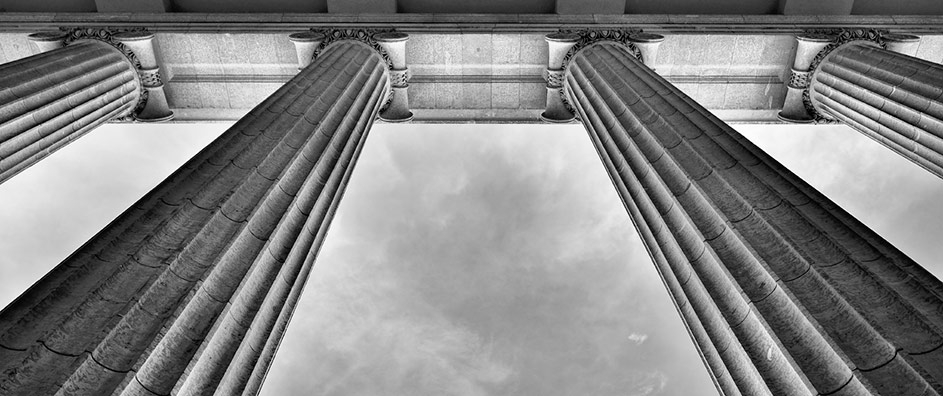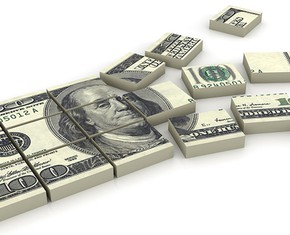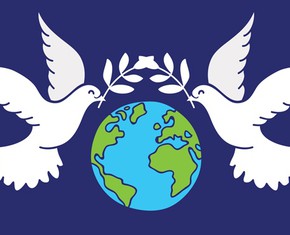The views expressed in our content reflect individual perspectives and do not represent the authoritative views of the Baha'i Faith.
O kings of the earth! We see you increasing every year your expenditures, and laying the burden thereof on your subjects. This, verily, is wholly and grossly unjust. Fear the sighs and tears of this wronged One, and lay not excessive burdens on your peoples. Do not rob them to rear palaces for yourselves; nay rather choose for them that which ye choose for yourselves. – Baha’u’llah, Gleanings from the Writings of Baha’u’llah, p. 253.
When the International Consortium of Investigative Journalists began to release and publish the vast trove of documents contained in the Panama Papers, they shined a new, harsh light on the behavior of government employees around the world. Those papers, from a law firm in Panama that specializes in hiding assets in shell corporations and tax havens, revealed the machinations of politicians, government employees and bureaucrats as they secretly stashed large amounts of money to hide it from public view and avoid paying taxes. Some of the bureaucrats and politicians named in the Panama Papers have already resigned, including the Prime Minister of Iceland and Spain’s Minister of Industry. More will likely follow as new documents emerge.
What does this mean?
At the very least, it means that the world wants justice. In the past, the common people often expected the leaders of governments and their minions to enrich themselves at the public trough. Kings in feudal systems openly viewed the taxes they levied as their personal riches, and built huge palaces and monuments to prove it. Today, many dictators and tyrants, and even some of the elected and appointed representatives in democracies, have the same kleptocratic outlook.
But, as the Panama Papers prove, this kind of widespread corruption is becoming harder and harder to hide. Whistle-blowers, public-spirited leakers and aggrieved-but-honest government employees want to bring corrupt government behavior out into the harsh light of day; journalists want to reveal corruption wherever it exists; legal authorities want to prosecute criminal behavior; and advocates of good government want graft, fraud and outright theft to stop. All this means that those who work in public service positions and steal from that same public have fewer and fewer ways to avoid discovery.
Baha’is believe that this kind of corruption must cease. Accordingly, the Baha’i teachings counsel public servants to exemplify justice, honesty and absolute trustworthiness, reminding everyone who carries out a governmental function that God’s grace depends on their actions:
Anyone who entereth the employee of the government should show forth in all his deeds and actions the highest degree of rectitude and honesty, of temperance and self-discipline of purity and sanctity of justice and equality. If, God forbid, he should be guilty of the least breach of trust, or approach his duties in a slack or desultory fashion, or extort so much as a farthing from the populace, or seek to further his own selfish interests and personal gain — then it is certain that he shall be deprived of the outpourings of God’s grace. – Abdu’l-Baha, from a previous untranslated tablet, Trustworthiness: A Cardinal Baha’i Virtue, a compilation of the Universal House of Justice.
Public service, the Baha’i teachings say, is a public trust:
Those persons who are selected to serve the public, or are appointed to administrative positions, should perform their duties in a spirit of true servitude and ready compliance. That is to say they should be distinguished by their goodly disposition and virtuous character, content themselves with their allotted remuneration, and act with trustworthiness in all their doings. They should keep themselves aloof from unworthy motives and be far removed above covetous design; for rectitude, probity and righteousness are among the most potent means of attracting the grace of God and securing both the prosperity of the country and the welfare of the people… Supreme honour, nobility and greatness in the human world, and true fidelity in this life and the life to come — all consist in equality and righteousness, sanctity and detachment. If a man would seek distinction he should suffice himself with a frugal provision, seek to better the lot of the realm, choose the way of justice and fair mindedness, and tread the path of high-spirited service. Such a one, needy though he be, shall win imperishable riches and attain unto everlasting honour. – Ibid.
So government employees, elected officials and those who hold appointive offices, the Baha’i teachings say, hold a sacred public trust—and must be trustworthy:
Governance is referred to in the Baha’i writings as an expression of trusteeship, as the administering of a trust. Baha’u’llah speaks of the governors and administrators of society as “trustees” or the “trusted ones” of God. He also warns leaders that the vulnerable and the poor “are the trust of God in your midst.” The concept of trusteeship implies, in some sense, a covenant between those who are in positions of authority and the members of the social polity they are obligated to protect and serve. Consequently, trustworthiness is a vital characteristic of governance; it is the source of true accountability. – Overcoming Corruption and Safeguarding Integrity in Public Institutions: A Baha’i Perspective, statement from the Baha’i International Community, p. 8.
Our societies have a long way to go before we can truly say our leaders are worthy of our trust. The only way to get to that point, Baha’is believe, is by re-awakening the powerful moral force of faith.
















Comments
Sign in or create an account
Continue with Googleor